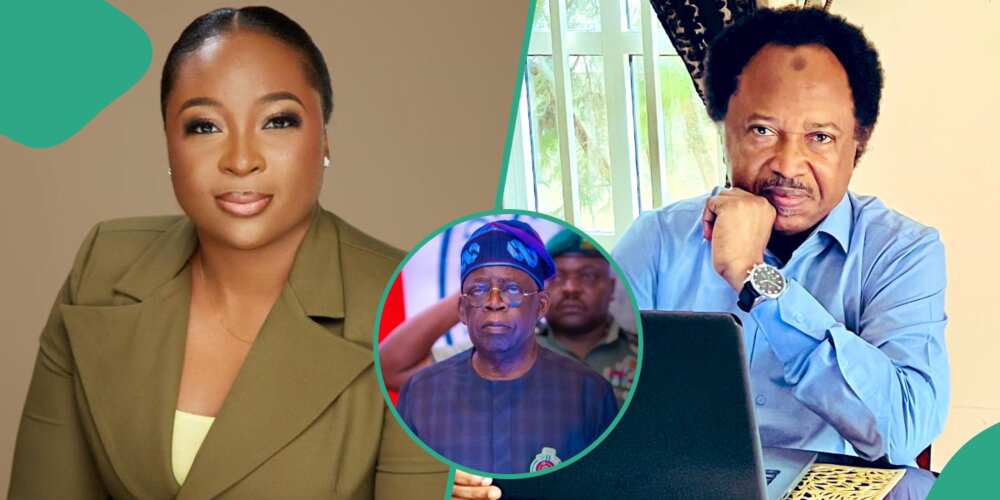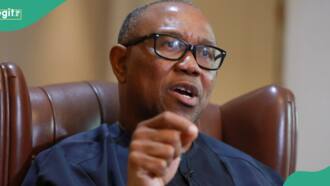Best Chance for Democracy: Why Nigeria Needs More Women in Governance
- Nigeria faces a significant challenge in achieving gender parity in governance, with women severely underrepresented in political leadership positions
- Barr. Juliet Isi Ikhayere, a House of Reps candidate in the 2023 elections, highlighted the need for deliberate efforts to empower women politically, citing societal and cultural barriers as key obstacles
- Former Kaduna senator Shehu Sani also spoke to Legit.ng on why the Nigerian government has failed to implement the law that reserves 35% of public offices for women
FCT, Abuja - Nigeria is on a journey towards a more inclusive democracy, and the active participation of women in governance holds immense significance.
The 2019 and 2023 general elections in Nigeria have provided glaring statistical evidence of the dire need to address the issue of women’s underrepresentation in leadership roles.

Read also
Naira bounces back, gains over N200 against dollar in black market, traders quote new exchange rate

Source: Twitter
According to data from the Independent National Electoral Commission (INEC), the 2019 general elections showcased a disheartening lack of women in elected positions. Of the 469 seats in the National Assembly, only 21 were occupied by women, representing a meagre 4.5% of the total seats.
Similarly, in the State Houses of Assembly, women held only 51 out of 991 seats, accounting for a mere 5.1% of the total.
Fast forward to the 2023 general elections, and the picture remains bleak. Despite efforts to promote gender equality and empower women in politics, the numbers still fall far short of achieving meaningful representation.
The National Assembly saw a slight increase, with women occupying 26 out of 469 seats, amounting to just 5.5%. Meanwhile, in the State Houses of Assembly, the percentage of women remained stagnant at 5.1%, with 51 out of 992 women holding seats.
These statistics underscore the urgent need for Nigeria to prioritise women’s inclusivity in governance if it aims to strengthen its democracy.
Nigeria needs to put women in leadership seats - Barr. Juliet
Speaking to Legit.ng, Barr. Juliet Isi Ikhayere, the African Democratic Congress (ADC)'s House of Representatives candidate for AMAC and Bwari Area Council, in the 2023 elections, said the Nigerian people need to be more deliberate in putting women at the forefront of leadership.
Asked if women were deliberately being sidelined from top political positions, Barr. Juliet said:
“I keep saying time immemorial that something you don’t fight for, something you don’t champion for or against, will not take the front seat, just like every other challenge in the world.
“And so why it’s happening today is because the Nigerian people have not deliberately organised themselves to have conversations towards insisting on that right. And so because of that, those party members, those bourgeoisie parties, take advantage of it. So for me, I will say it’s a deliberate attempt to actually sideline women because they know that that is not what the society is interested in.”
Disadvantages of sidelining women in governance
Meanwhile, the low representation of women in decision-making positions not only perpetuates gender inequality but also deprives the nation of diverse perspectives and experiences crucial for effective governance.
Furthermore, women’s underrepresentation in governance reflects broader societal challenges, including cultural barriers, patriarchal norms, and inadequate support structures for female political aspirants.
Reflecting on the above shortcomings, Barr. Juliet said:
“Imagine a culture that still practices child marriage or still feels a young girl shouldn’t even advance to the university stage.
“She didn’t even go to primary school. She shouldn’t have experienced primary education at all.
“These are things that would limit these women from thinking they can actually get to that position. They see it as too lofty a height, too lofty a dream. I’m just saying cultural barriers still actually hamper women from moving or even from thinking they can be elected or they are even competent enough.”
The legal battle to bring women to leadership seat
It’s been well over two years since nine civil society organisations secured victory in a legal battle that mandated the federal government enforce the National Gender Policy by allotting 35 per cent of appointments in the public sector to women.
After a stern legal battle faulting the federal government’s bias against the inclusivity of women in high-ranking positions in the Ministries, Departments and Agencies, the Federal High Court in Abuja held that:
“Dismantling barriers to women’s participation in public spheres has been achieved through progressive interpretation of municipal laws and international obligations and treaties.
“Formulating Policies based on sex, stereotyping, and feudal and patriarchal traditions will no longer be tolerated due to the supremacy of constitutional values.”
This judgment was much talked about, widely commended, and credited to these nine CSOs who stood up for women.
They include the Nigeria Women Trust Fund (NWTF), International Federation of Women Lawyers, Centre for Democracy, Development (CDD -West Africa), and Women Empowerment & Legal Aid (WELA).
Others include Yiaga Africa, Women Advocates Research and Documentation Centre (WARDC), Vision Spring Initiatives (VSI), Women In Politics Forum (WIPF), and 100 Women Lobby Group.
Despite this verdict, implementation remains a significant hurdle, highlighting the need for concerted efforts at both policy and grassroots levels.
Shehu Sani speaks on women’s inclusivity in governance
Reacting to this development, Senator Shehu Sani, a former federal lawmaker from Kaduna state, condemned the government for stalling the law’s implementation.
“It is wrong for the government to refuse to implement this law, and I think it’s because there is no penalty in terms of law," Sani told Legit.ng.
Meanwhile, women’s participation in governance goes beyond tokenism; it is essential for advancing democracy, fostering inclusive development, and achieving sustainable progress.
Research has consistently shown that countries with higher levels of women’s political representation tend to have better governance outcomes, including enhanced policy responsiveness, increased accountability, and improved social welfare.
To address the glaring gender gap in Nigerian politics, concerted efforts are needed from various stakeholders, including political parties, civil society organisations, and the government.
Strategies such as quota systems, affirmative action policies, mentorship programs, and capacity-building initiatives can help level the playing field and create a conducive environment for women to actively engage in politics.
Moreover, fostering a culture of gender equality and challenging stereotypes about women’s leadership capabilities are crucial steps towards breaking down entrenched barriers.
Nigeria can tap into its vast talent and expertise by empowering women to participate fully in governance, driving innovation and progress across all sectors.
Women’s inclusivity in governance is not just a matter of fairness but a fundamental prerequisite for a thriving democracy.
As Nigeria continues its journey towards democratic consolidation, prioritising women’s empowerment and representation must be at the forefront of the agenda.
Only by harnessing the full potential of its diverse population can Nigeria genuinely realise its vision of a prosperous and inclusive society.
Niger governor appoints 131 women as aides
Meanwhile, Legit.ng previously reported that Governor Mohammed Umaru Bago of Niger state approved the appointment of 131 women as aides.
The governor said 41 appointees will serve as coordinators, while 90 will serve as senior special assistants.
Bago explained that the appointment is the fulfilment of his campaign promise to allow women to contribute to the building of Niger state.
PAY ATTENTION: Unlock the best of Legit.ng on Pinterest! Subscribe now and get your daily inspiration!
Source: Legit.ng






